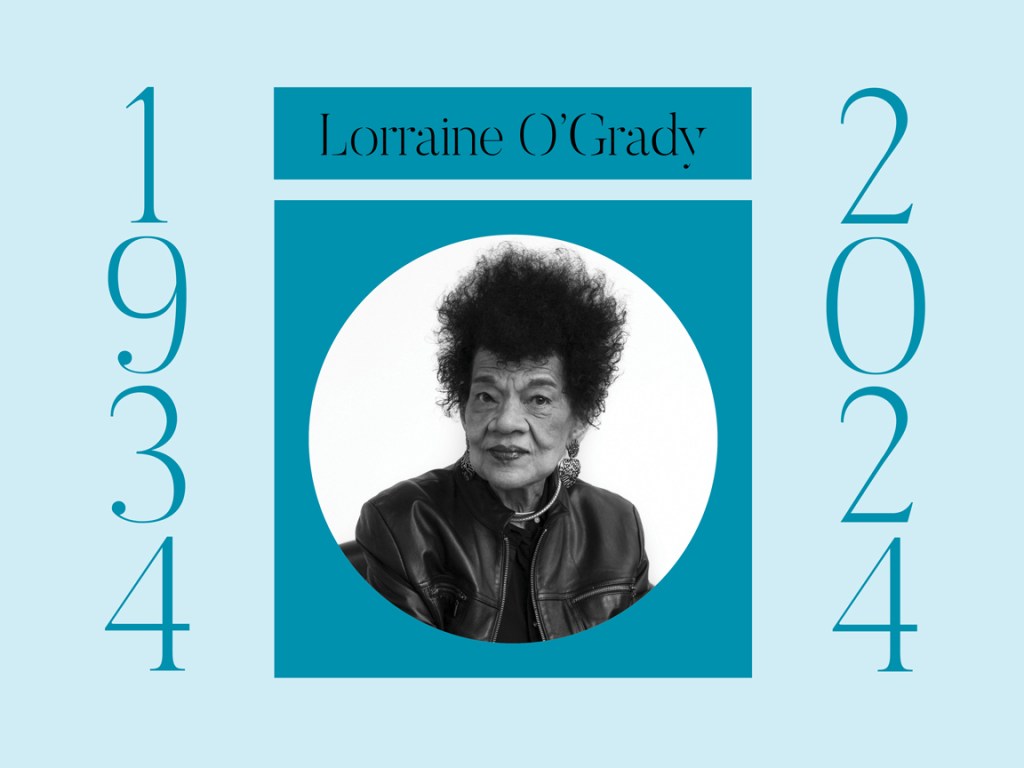In 2016 I despatched Lorraine O’Grady an invite to be the primary visitor for my talk-show venture, What’s shared, what is obtainable, at Impartial Curators Worldwide in New York. I used to be 32 on the time; Lorraine was 82. At that time, she and I had met briefly by means of Simone Leigh’s initiative Black Ladies Artists for Black Lives Matter, organized as a part of “The Ready Room,” Leigh’s New Museum exhibition that very same yr. In my preliminary e mail, I addressed Lorraine formally as “Ms. O’Grady” and introduced myself as somebody who had been profoundly influenced by her conceptual work.
5 days later, I obtained a response that has grow to be the cornerstone of my very own capability to say no. Henceforth, I’ve referred to this message, each privately and publicly, as a lesson from the “Lorraine O’Grady College of Refusal.”
After expressing thanks for the invitation, Lorraine wrote, “Sadly, due each to vastly elevated manufacturing and writing schedules and to advancing age—and with a heavy dose of ‘robust love’ from others—I’ve lastly adopted hard-and-fast protecting guidelines for myself: (1) Not more than two public occasions per yr … And (2) No additional interviews right now.” On the finish, she added, “I hope it’s going to work for us to work collectively at one other time.”
This message was not a rejection. It was the start of an inventive friend- and mentorship.
Lorraine has left behind her enduring idea of “each/and”—a rejection of the “both/or” binary that brings artists of shade towards crucial flexibility past the bounds of Western thought. The act of memorialization itself is each/and: once we eulogize, though the aim is to honor the lifeless, the reminiscences, language, and mode of emotional presentation are totally that of the still-living speaker. In different phrases, that is as a lot about me as it’s about Lorraine. It’s a present, and likewise a duty.
In 2018 I went to a e-book launch for Aruna D’Souza’s Whitewalling, an occasion on the Brooklyn Museum that featured Lorraine as a speaker. Lorraine spoke aloud a easy concept that I and lots of others within the room had felt however by no means put into language earlier than: the concept white supremacy could not require white folks in an effort to reproduce itself. I’ve usually felt a proximity to sure historic legacies, however at that second, I used to be fairly certain that I had witnessed a historic second. Lorraine had that capability—to depart us with an unsettled chill with only a single sentence—and to current an concept that’s each forward of its time and inevitable.
Lorraine was the one that pushed me towards better rigor, and inspired me to not grow to be anybody apart from my bizarre—and generally tough—inventive self. It was Lorraine who taught me, by means of her observe and her steering, that the manufacturing of a masterpiece—the one type of artwork she mentioned she had time for—entails not simply the conception, realization, and presentation of an art work. It additionally contains all of the detailed work across the work: the correspondence, the idea, the interviews, the interpretation, the quotation, the footnotes, the hyperlinking.
Lorraine left me with rather a lot. I treasure a trove of correspondence that features inquiries about each after I met my husband and once we grew to become lovers; a request to elucidate TSA Precheck and World Entry; and, extra not too long ago, hyperlinks to 2 lovely music movies that includes roller-skating. And I’ll all the time treasure a backlog of concepts that can feed me for a lifetime.
It was Lorraine who, by means of her sequence of “Efficiency Assertion” writings, launched me to a relationship to efficiency as each an appropriate political choice and a problematic class with which to establish. It was Lorraine who made me perceive “writing in area” as an integral a part of an inventive observe. And it was Lorraine who helped me join with my gallery, Alexander Grey Associates. As an artist who has adopted private obsession slightly than the market, with work that shifts in kind and materials, it’s a true present that she supported me in that approach.
This previous July, the final time we noticed one another in particular person earlier than her demise, I instructed Lorraine she was impeccable. She laughed, and mentioned it took plenty of work.
The work was price it. I’ll miss my mentor. I’ll miss my pal. Lorraine O’Grady’s reminiscence is already a blessing.
